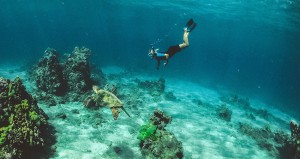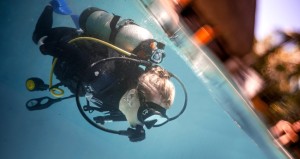Diving Sites in Port Blair



Showing 2 Scuba diving Packages for you
 Scuba kit
Scuba kit Swim suit
Swim suit Transportation
Transportation Scuba dive
Scuba dive
Starting Price ₹12000
Per Person
 Scuba kit
Scuba kit Swim suit
Swim suit Transportation
Transportation Scuba dive
Scuba dive
Starting Price ₹16000
Per Person
There are a number of PADI speciality dive courses for divers and professionals in the Andaman Islands. You may feel a little overwhelmed with the availability of these numerous courses that dive centres offer. When choosing a PADI speciality course, you should consider two main factors:
- What type of diving are you interested in?
- What skills are necessary to conduct those dives safely and enjoyably?
For instance, if you are interested in enjoying diving at tropical reefs, then a dry suit speciality course would not be useful. On the other hand, if you are someone who is interested in cave diving in Norway or exploring the mines in Finland, then a dry suit speciality course would be perfect.
There are a number of PADI speciality dive courses for divers and professionals offered in the Andaman Islands and you can choose from them as per your preference. In case you are still unsure about which one to pick, then our expert divers will help you in selecting the perfect one for you after knowing your interest areas.
Along with donning the scuba gear and jumping into the sea for exploring the reef, scuba diving is a lot more. A myriad of PADI Specialty Courses is available with which you can learn various new techniques by using different tools. You can pick a speciality as per your interest and go for dives in any of these top diving spots. Except for Taj Exotica Resort & Spa and Barefoot, we will provide you pick-up and drop-off facility as well. Our 5-star PADI facility will take care of all your requirements to ensure that you have a wonderful dive.
Some of the Dive Sites are as follows:
- The Wall – Groupers, snappers, sweetlips, parrotfish, butterflyfish, angelfish, moray eels, lionfish, scorpionfish, etc. can be spotted here.
- Red Pillar — the best spot for diving for beginners
- Tribe Gate — popular for hard corals and small groups of fish
- Nemo Reef — houses fringing reefs crowded with large groups of colourful fishes
- Lighthouse — perfect balance of vibrant fish and soft & hard corals
Important Things to keep in Mind
- One should be above ten years to perform these activities. The charges are the same for everyone.
- Children aged 10-14 years must be accompanied by an adult. They will not be allowed to go for any dive or course on their own.
- You must report at the venue at least 30 minutes before your booked slot.
Explore the captivating videos showcasing water activities in the Andaman Islands.
Frequently Asked Questions
-
Q. 1 : What kind of diving courses should you take to be a recreational scuba diver?
Answer: You need to train at a diving centre to be a recreational diver. You will start with an open-water scuba certification. Thereafter, you can get an advanced Open Water Scuba certification, Rescue certification, and then a Master Scuba Diver certification. To become a professional scuba diver, you need to start from the Master Scuba Diver level. You can become an assistant at a diving centre to learn the professional side of scuba. Thereafter, you need to take an open water scuba instructor course, that trains you to be an instructor as well as certify others. Going forward, you can become a Master Scuba Diver trainer
-
Q. 2 : What is the highest certification qualification in scuba diving?
Answer: Like any other profession, in scuba diving, too, you need to clear certain levels to be able to get the highest certification from the professional body, PADI. A person with the highest certification in scuba diving is called a Master Scuba Diver (MSD). To become a PADI Master Scuba Diver, you must take around 50-60 open water dives and be more than 12 years of age. You also need to complete a PADI specialty diver course and hold certifications in open water diving, advanced open water diving, and rescue operation diving.
-
Q. 3 : What is the duration of a specialty dive course?
Answer: Specialty dive courses may last for anything between 2 days to 7 days or more. The duration depends on the package provided by the centre. It usually takes 4 days to get a PADI open water diving certificate. While it does not take a lot of time to complete each course, you need to complete various specialty courses to be a professional diver.
-
Q. 4 : Is there any age limit for diving courses?
Answer: While there is no upper age limit, you need to be a minimum of 10 years of age to enrol for the open water diving course. You can also enrol in deep diving courses once you have an open water diving certificate; however, you have to be at least 15 years to be eligible for that.
-
Q. 5 : Can you do a specialty diving course if you don’t know how to swim?
Answer: Unfortunately, not. While you can scuba dive without knowing how to swim, to be able to enrol in a scuba certification course, you’d need to know how to swim. Scuba certification courses are more intensive than general diving and involve learning certain tricks in the water that are not possible without knowing how to swim. Also, if you want to pursue more advanced courses, you will need to know how to swim.
-
Q. 6 : How much does it cost to do a diving course?
Answer: Good news; it does not cost a lot to enrol in a scuba diving course. Most open water basic courses start at INR 6,500 but can go up to INR 20,000 depending on the length and depth of the course. If you want to learn a range of things in your training, that will inflate your cost, too. Most scuba diving courses come in a package that includes the gears, boat rides, and instructors for the duration of your program.
-
Q. 7 : What are the best places for specialty dive courses in the Andamans?
Answer: In India, the Andaman Islands are very popular for their scuba diving programs. Many professional diving centres in Andamans will help you get a PADI certification and train you to be a professional scuba diver. In Andamans, many people head to Havelock Island for the best scuba diving courses. The island thrives on scuba tourism and hence there are many professional diving centres there with world-class diving instructors. The case is similar for Neil Island, although there are fewer centres at Neil. Port Blair also has many diving centres where you can enrol for diving lessons. It will also cost you very less to do a scuba diving course in the Andamans. Around the world, note that wherever there are great diving spots, there will be good diving centres. Thailand, Belize, the Philippines, and Australia are some places across the globe that have good diving centres.
-
Q. 8 : Are there any medical conditions that restrict you from doing a diving course?
Answer: Before you enrol in a specialty dive course, you should get a medical checkup done. While it is not mandatory dive, it will help you negate any risk that may be involved in your diving experience. As a rule, people with weak respiratory organs are not allowed to dive. This is because breathing is the most important technique one has to use while diving. You might put yourself at risk if you dive with a respiratory problem. This rule also applies to heart patients and pregnant women, although, it is advisable to consult your doctor to see if you are still fit enough for a dive.
-
Q. 9 : Will your poor eyesight restrict you from doing a diving course?
Answer: The whole idea behind diving is to explore the beautiful flora and fauna in the underwater world. Poor eyesight will hinder your plans to do that. Having said that, you’ll not be barred from diving if you have poor eyesight. The bad news is that you cannot wear your prescription glasses while diving. But wait, there are always solutions. Glasses are not allowed specifically because they will hinder you from wearing the scuba mask. You can still wear contact lenses while diving. Your face is not directly exposed to water, so you don’t have to worry about wearing contact lenses under water. Also, some scuba masks come with prescription power. You have to get in touch with your diving centre beforehand to check if they have prescription scuba masks that match your power. If you plan to take up scuba professionally you can get a prescription scuba mask made for yourself.
-
Q. 10 : Which dive sites are best in the Andamans for diving courses?
Answer: Without a doubt, Aquarium and Lighthouse are the two most frequented dive sites in the Andamans. Since the depth of the dive is low in both places, you can start your specialty scuba diving course in these places. If you want to avoid the crowd, however, you can try diving from the many other great diving spots on the islands. You can go to Bob’s Backyard, Mac Point, Nursery, and Elephant Beach on Havelock Island. Margherita’s Mischief and Bus Stop are also famous diving spots on Neil Island. For Advanced courses specialty scuba dive courses, you should go to New Barracuda City, Jackson’s Bar, and Johnny’s Gorge.
Diving Sites in Port Blair
Diving Sites in Havelock Island
Diving Sites in Neil Island


